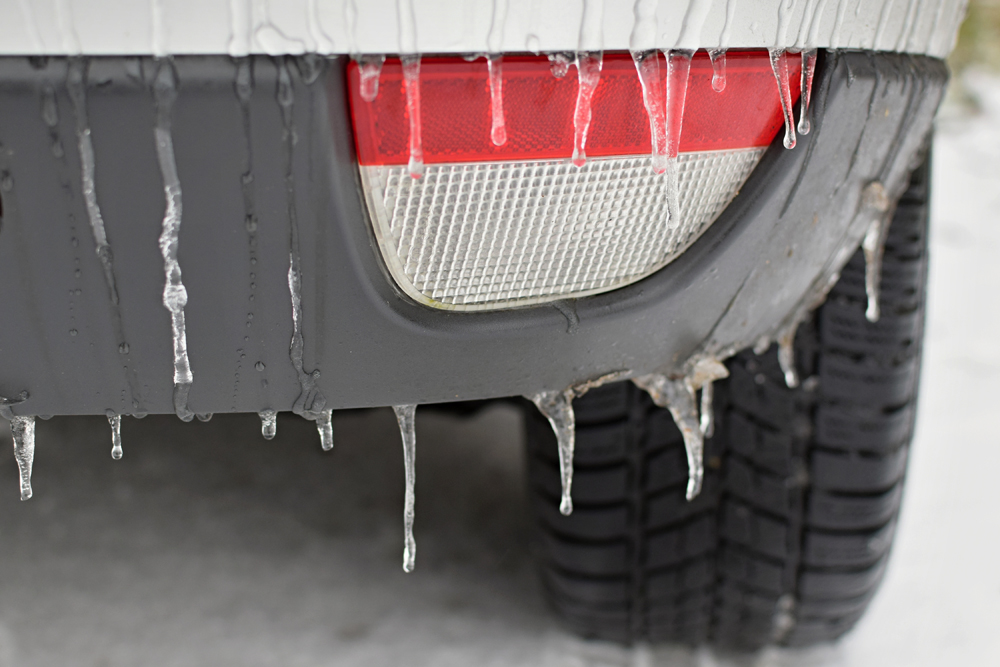
The Central Texas Hill Country Could See Freezing Rain Or Snow Starting Late Wednesday
AUSTIN – With a cold front expected to bring winter weather to parts of the state this week, the Texas Department of Public Safety (DPS) is reminding everyone to take precautions now to prepare for any freezing rain, sleet, snow, ice, or other wintry mixes that may impact their area.
A marginal risk of severe storms late Wednesday and on Thursday the rain changes to a winter mix and snow for the Texas Hill Country. Texans are encouraged to make sure their vehicles are properly maintained for winter weather.
This includes checking the battery, windshield wipers, tire pressure, tire treads, and fluid levels, as well as ensuring proper lubrication of door and trunk locks to prevent them from freezing.
DPS offers the following tips to stay safe on the roads this winter:
- Monitor local weather broadcasts and check the latest weather conditions from the National Weather Service.
- Be aware that ice accumulates on bridges and overpasses before drivers will see it on roads and highways, so approach them more slowly in winter weather.
- Avoid traveling when sleet, freezing rain, or snow is predicted, and monitor road conditions by visiting Drive Texas or calling (800) 452-9292.
- If you must drive in inclement weather, allow extra time to reach your destination. Share your travel plans with a friend or family member.
- On icy roads, drive slowly and increase the distance between your vehicle and others, as you may need increased room to stop your vehicle. Do not use cruise control.
- Ensure your vehicle has a full tank of gas.
- Watch for downed trees and power lines. If a stoplight is out, treat the intersection as a four-way stop.
DPS also offers the following tips to help protect you and your home all season long:
- Use an all-hazards weather radio for up-to-date warnings, watches, forecasts, and other hazard information.
- Sign up for calls or texts from your local emergency notification system.
- Insulate outside faucets and pipes near outer walls.
- Make sure furnaces, heaters, fireplaces, and wood stoves are clean, well-ventilated, and in good working condition.
- Keep space heaters at least three feet away from walls and combustible materials, including furniture and bedding, and don’t operate these machines when you’re asleep. Also, ensure the space heater cannot tip over.
- To prevent carbon monoxide poisoning, never operate a generator or other fuel-powered device inside a home, garage, or other enclosed space. The odorless, colorless gas is deadly and is produced any time a fossil fuel is burned. Sources include motor vehicle engines, generators, and fuel-burning appliances or heating systems. Consider installing a carbon monoxide detector in your home.
- Check on friends and family members whose health or age may put them at greater risk.
- Stock up on firewood and supplies, including canned goods, bottled water, and medication.
Drivers are also encouraged to keep the following emergency supplies in their vehicles:
- Blanket or sleeping bag;
- Extra clothes, gloves, and a hat;
- Cell phone, radio, flashlight, extra batteries, and phone charging cord;
- First aid kit and a pocket knife;
- High-calorie, non-perishable food and bottled water;
- A bag of sand or cat litter to provide traction for tires;
- Windshield scraper, tool kit, booster cables, tow rope, and a shovel; and
- Jumper cables.
For more tips on vehicle safety, visit Ready.gov, and check out these winter driving safety tips from the National Highway Traffic Safety Administration (NHTSA).






